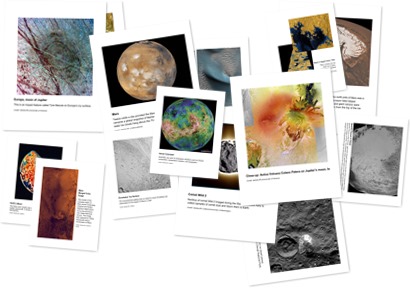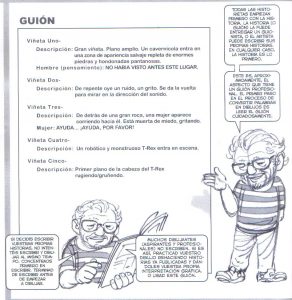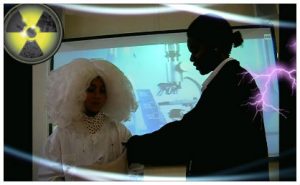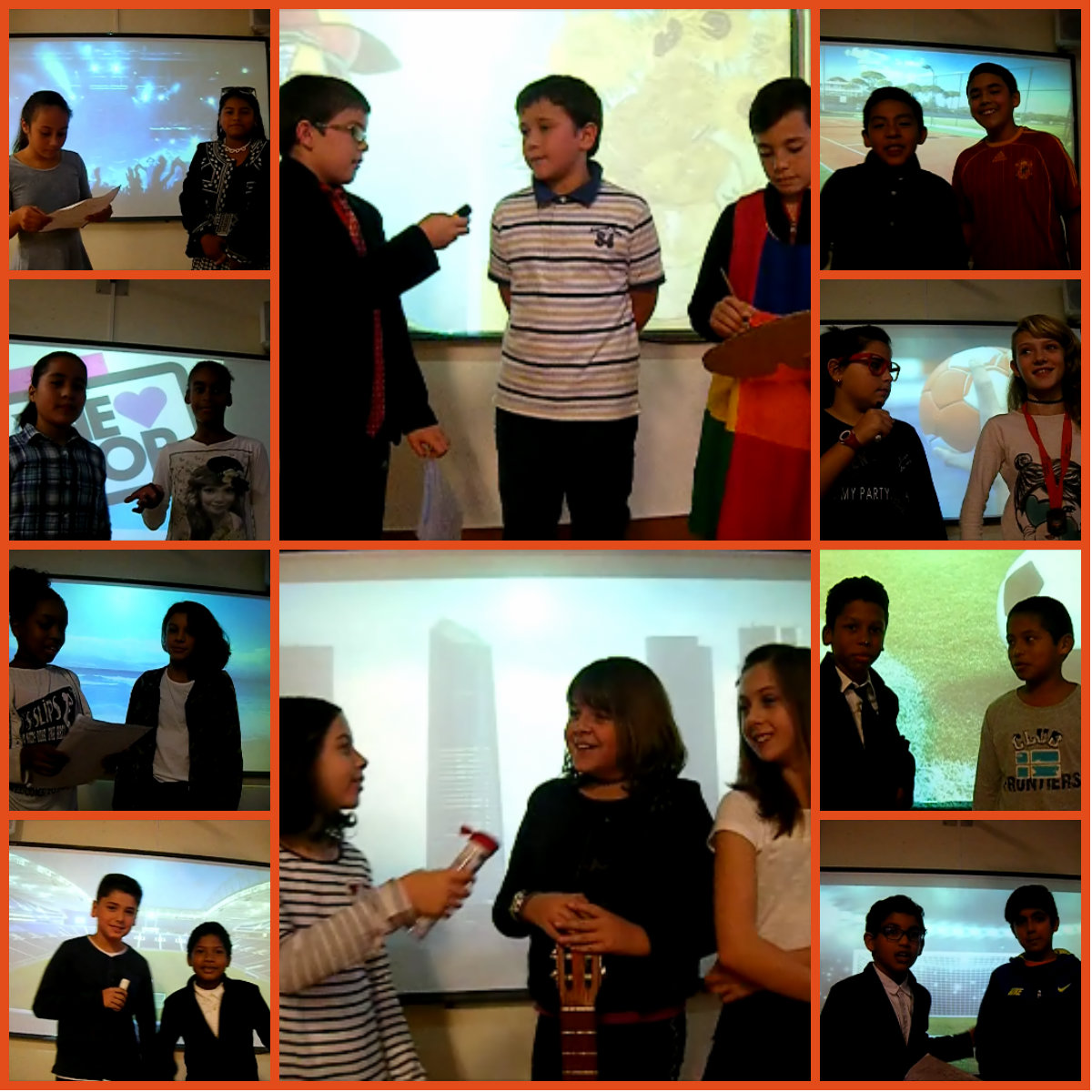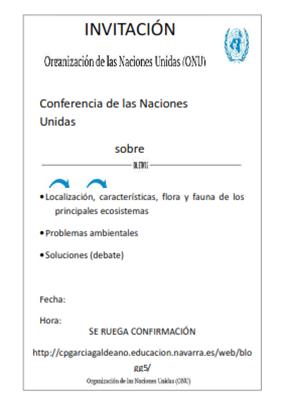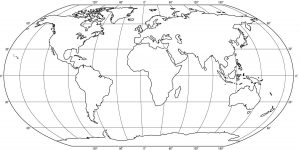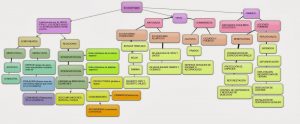Archivo del Autor: blog5
SOLAR SISTEM MUSICAL
PLANETARY POSSE
PLANETARY POSSE
Music by Kellee McQuinn and Keith Davis.
Lyrics by Kellee McQuinn
HANNAH: Wow. Where am I? Who are you guys?
CHORUS:
We are the place to be in the Galaxy
The Planetary Posse for everybody to see
We are the place to be in the Galaxy
If you donʼt hang with me
Youʼre just a wanna-be!
SUN
I am the Sun burning bright for everyone
Four million tons of hydrogen turned helium
Itʼs no delusion – itʼs just nuclear fusion
Itʼs been proven that Iʼm always movinʼ
Iʼve got the pull – keepin yʼall in line
Got yaʼ spinning on your axis throughout space and time
Put your hands up in the air to see a solar flare
Cʼmon feel the commotion of this giant explosion!
Heʼs hot (How hot?)
10,000 degrees Heʼs big (How big?) Almost a million miles Heʼs old (How old?)
4 billion years
And if you donʼt believe me, just ask my peers.
We got Mercury, Venus, Earth and Mars
Theyʼre my crew along with all the other moons and stars
Thereʼs Jupiter, Saturn and of course Uranus
Heʼs a really nice planet though his name is heinous Donʼt forget Neptune, Pluto and his
dwarfy friends The Universe is cool because it never ends.
Each one of these peeps has got something to say
The most talented troupe in the Milky Way
MERCURY
Yoʼ Iʼm Mercury, you can call me Merc
First planet in line but that donʼt make me a jerk.
Yeah, Iʼm #1, I go around the sun
In just 88 days, I get cold and then I blaze.
Iʼm not tilted or wilted ʻcuz I got no air
Covered with craters so please donʼt stare.
Iʼm rocky and stocky built like a jockey
Smallest of our bunch, made with metals, packed with punch – Yoʼ!
VENUS
V to the E to the N – U – S
Iʼm the hottest and brightest, donʼt be envious
Iʼve got a nickname, itʼs “Morning Star”
And Iʼm covered in clouds that are thick as tar
There are volcanoes all over my surface
Forgive me if Iʼm volatile, itʼs not on purpose
Iʼm the 2nd closet planet to the Sun
If you like sulfuric acid we could have some fun
EARTH
Third is the word, my name is Planet Earth
Iʼm oozing with life, every day I give birth
To plants and people and animals and bugs
Iʼm like a big round mama and I love to give hugs
To the north pole – Whoa! And the south pole – Whoa! To the moon – Whoa!
And the O2 – Whoa!
Iʼm a blue & white marble, floating in space
With jungles, rocks, and oceans and tectonic plates
I got an atmosphere, biosphere, geosphere & hydrosphere
And if thatʼs not enough I even got a cryosphere
8,000 miles wide but I donʼt need a diet
Got lots of gravity, dare you to defy it
Iʼve got summer, winter, spring and fall
If you havenʼt guessed yet – Iʼve got it all!
MARS
ʻSup Iʼm Mars – Iʼm red as rust
Topped with canyons and craters all covered in dust
Got CO2 and H2O
Will people live on me? Wouldnʼt you like to know?
I got 24 hours in my day
And Iʼm a lot like Earth some scientists say
But I own 2 moons and lots of dunes
Cʼmon hit the floor for planet # 4
JUPITER
Iʼm Jupiter and Iʼm really huge
The largest planet, in fact, with 62 moons
Got a Great Red Spot on my face
And Iʼm the fastest spinner if you wanna race
Iʼve got colored bands, a giant made of gas
Thereʼre clouds & storms all over my mass
Takes me 12 years to orbit ʻround the sun
If you jive with # 5 then Iʼm your favorite one.
SATURN
Hey everybody, Iʼm 6th and Iʼm Saturn
I got swirly winds in a stripey pattern
Iʼm pretty famous for my pretty rings
But what I really love to do is dance and sing
With my 62 moons Iʼm never alone
Hydrogen and helium call me their home
My magnetosphere makes a gorgeous aurora
Loop the Sun in 29 years, hope that doesnʼt bore yaʼ
URANUS
Iʼm lucky # 7, Uranus is my name
Living way up in the heavens, got some ice and methane
I like to spin on my side
And in reverse, kick it with a backslide
Iʼm electric and greenish blue
Got lots of seasons and 27 moons
In 84 years Iʼll orbit our Sun
Doing windmills the whole way, poppinʼ, lockinʼ, spinning, spun
NEPTUNE
Yoʼ Iʼm Neptune and Iʼm really far out
Iʼve got a Great Dark Spot, thatʼs nothinʼ to laugh about
Iʼm freezing cold, got methane ice
Iʼm blue as an ocean in paradise
My 13 moons and I like to travel
Plus Iʼve got a few rings made of rocks and gravel
All of my days are not very long
Just 17 hours – almost as long as this song
Iʼm the 8th and last planet out of my homies
165 years from the Sun – it can get kinda lonely
PLUTO & DWARF PLANETS
Hi Iʼm Pluto and Iʼve been demoted
I demand a recount for all who voted
Now Iʼm a dwarf planet hanginʼ in the Kuiper Belt
But I still can jam it, so cool Iʼll never melt
I got 3 moons and a few new pals
Hereʼs the other dwarfs in alphabetical
Thereʼs Ceres, Eris, Haumea & Makemake
Maybe 200 more which is quite a shockaʼ
Iʼm the king of the munchkins but thatʼs alright
Iʼm still a stella fella and Iʼll always shine bright
(Repeat Chorus)
©2010 NASA/JPL
CONFERENCIA ECOSISTEMAS 2016
(Pincha sobre el nombre de los ecosistemas para ver y escuchar las conferencias)
CIENCIA FICCIÓN
DEL CIELO A LA TIERRA
Nuestro Sistema Solar
Misterios del Sistema Solar
Hay muchas preguntas fascinantes. Si tienes curiosidad sobre estos misterios, ¡tienes suerte! NASA decidió que los buenos misterios merecen ser estudiados. Así que, la NASA le pidió a los científicos que trabajaran en grupos para escoger un misterio para explorar y pensar qué quieres aprender. Muchos equipos mandan sus ideas a NASA.
Cada par de años uno o dos misterios del sistema solar son escogidos y se convierten en una misión al espacio. Este programa especial se llama el Programa de Descubrimiento de NASA (NASA Discovery Program).
PREGUNTAS
¿Cómo se formó el Sistema Solar?
¿Hay otros planetas como la tierra?
¿Por qué algunos planetas no tienen lunas, como Mercurio y Venus, y otros planetas tienen muchas lunas, como Júpiter?
¿Cómo se crearon esas lunas? Aún más, ¿cómo se formaron el Sol, los planetas, los cometas y los asteroides?
¿Por qué algunos planetas son pequeños, como Plutón, y algunos tan grande, como Júpiter?
¿Por qué algunos planetas son sólidos y rocosos y otros son bolas de gas?
¿Por qué todos los planetas giran en la misma dirección, excepto Urano,que gira en dirección contraria?
¿Qué hay dentro de un cometa?
¿Cuán viejo es nuestro sistema solar?*¿ Cómo se verá cuando tengáis 70 años? ¿Cómo se verá en un millón de años?
¿Hay otros planetas como la tierra?
BIG BANG
Music by Kellee McQuinn and Keith Davis
Lyrics by Kellee McQuinn
HANNAH: I know I can do it. Iʼm going to finish this project, and itʼs gonna turn out
awesome. Iʼll just ask for a little help from my friends. Together weʼll make a big bang!
SUN: Space. Solar System.
PLANETS: Big Bang. Big-big Bang.
MOONS: S-P-A-C-E. Space is where Iʼve got to be.
METEOR: S to the P to the A-C-E. Space is the only place for me.
COMET: Big Bang
ASTEROIDS: Big Bang. Big-big Bang.
GRAVITY: Ooo-ooo. Ooo-ooo. Big Bang.
EVERYONE: Big Bang. Big-big Bang. Big Bang.
HANNAH: The only place for me. A place I can be free. S-P-A-C-E. Itʼs where Iʼve got
to be.
S-P-A-C-E. Itʼs where Iʼve got to be.
©2010 NASA/JPL
SOLAR SISTEM (más música)
Maquetas (Sigue el enlace)
CONFIRMACIÓN
CONFIRMACIÓN ASISTENCIA A LA CONFERENCIA INTERNACIONAL
CAMBIO CLIMÁTICO 2016
EL GUIÓN
ENTREVISTAS
¡¡¡Disfrutad de las entrevistas que hemos preparado!!!
Pinchad sobre vuestros nombres
Yorgelis Keira Chaima Marle Iker Amaro
Angelina Irianny Aimar Imanol Simon Patricia Ainhoa
Nora Marta Lorena Uxue Irune Cristian Carlos
Una vez visionadas las entrevistas. Escribid vuestra opinión prestando atención a la ortografía. Las críticas son constructivas, nos sirven para mejorar.
¡Deja tu comentario!
TERTULIAS
LECTURA PREVIA
Chelm era una aldea de tontos Isaac Bashevis Singer
Isaac Bashevis Singer (1904-1991)
Escritor estadounidense de origen polaco que escribió en lengua yiddish. Singer nació el 14 de julio de 1904 en Radzymin (Polonia), y emigró a Estados Unidos en 1935, donde se nacionalizó en 1943. Al poco tiempo de su llegada se incorporó al periódico neoyorquino en lengua yiddish Jewish Daily Forward. Su primera novela, Satán en Goray (1935) trata de la histeria religiosa y los pogromos del siglo XVII, en los que los judíos de Polonia fueron brutalmente asesinados por los cosacos. Otras novelas famosas son La familia Moskat (1950), la única de sus obras literarias en las que el elemento ficticio está  ausente; La casa de Jampol (1967) y Los herederos (1969). En el patio de mi padre, autobiográfica, se publicó en 1966. Singer también escribió relatos muy imaginativos, como los publicados en Gimpel el tonto y otros relatos (1957). Fue galardonado con el National Book Award (Premio Nacional del Libro) por Un día placentero: Relatos de un niño que se crió en Varsovia (1973), uno de sus libros de literatura infantil. En 1978 le fue concedido el Premio Nobel de Literatura por su «apasionado arte narrativo» que tiene sus raíces en la cultura polaco-judía. En 1982 publicó Relatos completos y en 1984 Relatos para niños. La famosa película, Yentl, se basó en su relato Yentl the Yeshiva Boy(1983). Meshugah, una novela corta sobre un grupo de sobrevivientes del holocausto que viven en Nueva York, se publicó en 1994, después de su muerte. La obra de Singer se caracteriza por la fuerza de su argumento, lleno de pasión por la vida y desesperación por las tradiciones que se pierden. Todos sus libros están ambientados en su pasado polaco y en las leyendas de los judíos y del folclore de la edad media europea. Él mismo tradujo muchas de sus obras al inglés. En 1984 se publicó su autobiografía, Amor y exilio: Memorias.
ausente; La casa de Jampol (1967) y Los herederos (1969). En el patio de mi padre, autobiográfica, se publicó en 1966. Singer también escribió relatos muy imaginativos, como los publicados en Gimpel el tonto y otros relatos (1957). Fue galardonado con el National Book Award (Premio Nacional del Libro) por Un día placentero: Relatos de un niño que se crió en Varsovia (1973), uno de sus libros de literatura infantil. En 1978 le fue concedido el Premio Nobel de Literatura por su «apasionado arte narrativo» que tiene sus raíces en la cultura polaco-judía. En 1982 publicó Relatos completos y en 1984 Relatos para niños. La famosa película, Yentl, se basó en su relato Yentl the Yeshiva Boy(1983). Meshugah, una novela corta sobre un grupo de sobrevivientes del holocausto que viven en Nueva York, se publicó en 1994, después de su muerte. La obra de Singer se caracteriza por la fuerza de su argumento, lleno de pasión por la vida y desesperación por las tradiciones que se pierden. Todos sus libros están ambientados en su pasado polaco y en las leyendas de los judíos y del folclore de la edad media europea. Él mismo tradujo muchas de sus obras al inglés. En 1984 se publicó su autobiografía, Amor y exilio: Memorias.
Asnos-estupidos Isaac Asimov
(Petróvichi, República Socialista Federativa Soviética de Rusia, 1920 – Nueva York, Estados Unidos, 1992).
Fue un polímata: escritor y bioquímico soviético, nacionalizado estadounidense, conocido por ser un excepcional y prolífico autor de obras de ciencia ficción, historia y divulgación científica. La obra más famosa de Asim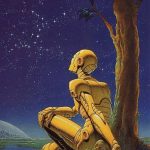 ov es la Saga de la Fundación, también conocida como Trilogía o Ciclo de Trántor, que forma parte de la serie del Imperio Galáctico y que más tarde combinó con su otra gran serie sobre los robots. También escribió obras de misterio y fantasía, así como una gran cantidad de textos de no ficción. En total, firmó más de 500 volúmenes y unas 9.000 cartas o postales. Sus trabajos han sido publicados en 9 de las 10 categorías del Sistema Dewey de clasificación.
ov es la Saga de la Fundación, también conocida como Trilogía o Ciclo de Trántor, que forma parte de la serie del Imperio Galáctico y que más tarde combinó con su otra gran serie sobre los robots. También escribió obras de misterio y fantasía, así como una gran cantidad de textos de no ficción. En total, firmó más de 500 volúmenes y unas 9.000 cartas o postales. Sus trabajos han sido publicados en 9 de las 10 categorías del Sistema Dewey de clasificación.
CITA CON FAMILIAS
LOS ECOSISTEMAS
RETO
Conferencia de las Naciones Unidas sobre Cambio Climático 2016
Sois un equipo multidisciplinar de científicos/as. Pronto se convocará una conferencia para dar a conocer los distintos tipos de ecosistema que hay en el planeta tierra y los problemas ambientales que el ser humano está provocando en ellos.
El objetivo de esta Conferencia Internacional, es impulsar a los países a ser más ambiciosos en su compromiso para hacer frente al calentamiento global.
VÍDEOS CONFERENCIAS 30-11-2016
Formulario de CONFIRMACIÓN DE ASISTENCIA al evento
GRUPOS INVITADOS A LA CONFERENCIA
LOS ECOSISTEMAS
TERRESTRES: TUNDRA, DESIERTO, BOSQUE, SELVA, taiga,
ACUÁTICOS: AGUA DULCE, AGUA SALADA
MIXTOS: COSTAS, HUMEDALES
INVESTIGACIÓN (Guión de trabajo)
- LOCALIZACIÓN EN EL MAPA de vuestro ecosistema
- CARACTERÍSTICAS de vuestro ecosistema
- Clima
- Vegetación
- ANIMALES TÍPICOS de vuestro ecosistema
- PROBLEMAS AMBIENTALES de vuestro ecosistema
- REALIZACIÓN DE UNA MAQUETA de vuestro ecosistema y
- EXPOSICIÓN ORAL del guión de trabajo.
MATERIALES
- Caja de zapatos
- Tijeras
- Pegamento
- Recortes de fotos…
- Animales de plástico…
ESQUEMA




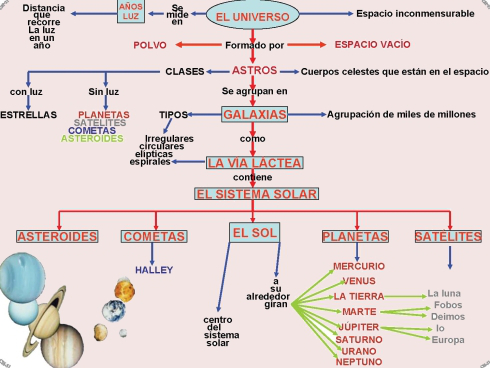
![clip_image002[4] clip_image002[4]](https://cpgarciagaldeano.educacion.navarra.es/web/blogg5/wp-content/uploads/sites/6/2016/11/clip_image0024_thumb.png)
